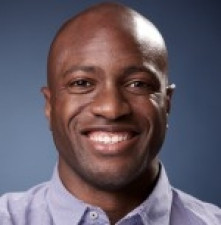
Coming up with solutions to address underserved communities comes down to providing ubiquitous access.
Speaking during the final keynote at AfricaCom 2015 today, a group of panellists outlined what strategies are needed to target and deliver services to this market segment.
Ime Archibong, director of product partnerships at Facebook, cited a partnership approach as being essential to breaking down barriers around awareness. Within the scope of these partnerships, Archibong outlined the importance of "knowing your strengths" and then bringing those skills and that level of expertise to the table.
"For Facebook, our efforts to reach the most rural populations are happening in our R&D lab where we are experimenting with new ways to provide access."
Addressing access means building specific business models for rural areas, noted Patrick Benon, CEO of Orange Botswana. This entails coming up with creative ways for impoverished groups of the community to derive benefits from digital innovation, he continued.
"It really is about partnerships. A single organisation really cannot do this by themselves. We need to involve local businesses and allow them to make money too. All stakeholders should be able to succeed."
According to Benon, the access conundrum is multifaceted - it involves providing access to electricity, access to education and access to information about the benefits of digital technologies.
In line with this idea around educating underprivileged populations, Archibong described raising awareness as a big focus area for Facebook. "Sure, users like to use Facebook to connect with their friends but there is so much more that new groups of people who are coming online can use this connectivity for; things like learning, communication and financial inclusion."
John Bernard, global marketing director for Mozilla, described accessibility, availability and affordability as the crux of this conversation. "We want the Web to be a free and open resource that everyone can utilise."
Getting this right requires input from everyone; be it manufacturers or operators, policy-makers or consumers. Having said this, he stressed that while there are a multitude of players in this process, it really does start with government and operators collaborating to provide the backbone and resources to enable and improve access.
For Suraya Hamdulay, executive head for group sustainability at Vodacom, the development of products and services should be driven by a desire to create shared value for operators and communities.
"We have to be thinking about our own operations, while attempting to empower communities. This will ensure their sustainability and development as we grow as an operator."
For Vodacom as a network, it needs to be packaging products and services so that it can reach all customers - from those at the bottom of the pyramid, to those at the very top, she went on to say.
Hamdulay shared her belief that a shift away from viewing rural communities as being underserved is necessary. This entails actually bringing them into the heart of your growth strategy, she said. Doing so will help businesses to better understand how this sector of the market can form part of our development.
"If we don't take creating shared value seriously, in the next decade or two, we won't have any customers at all."
Access is opportunity, concluded Archibong. "We are all in the business of providing opportunities to people in underserved communities. The first step is unlocking the opportunity for them. Then we need to provide the tools and services so that these people can build solutions for themselves in a sustainable manner. This will help them to create their own businesses and change the lives of others in their community."
Share